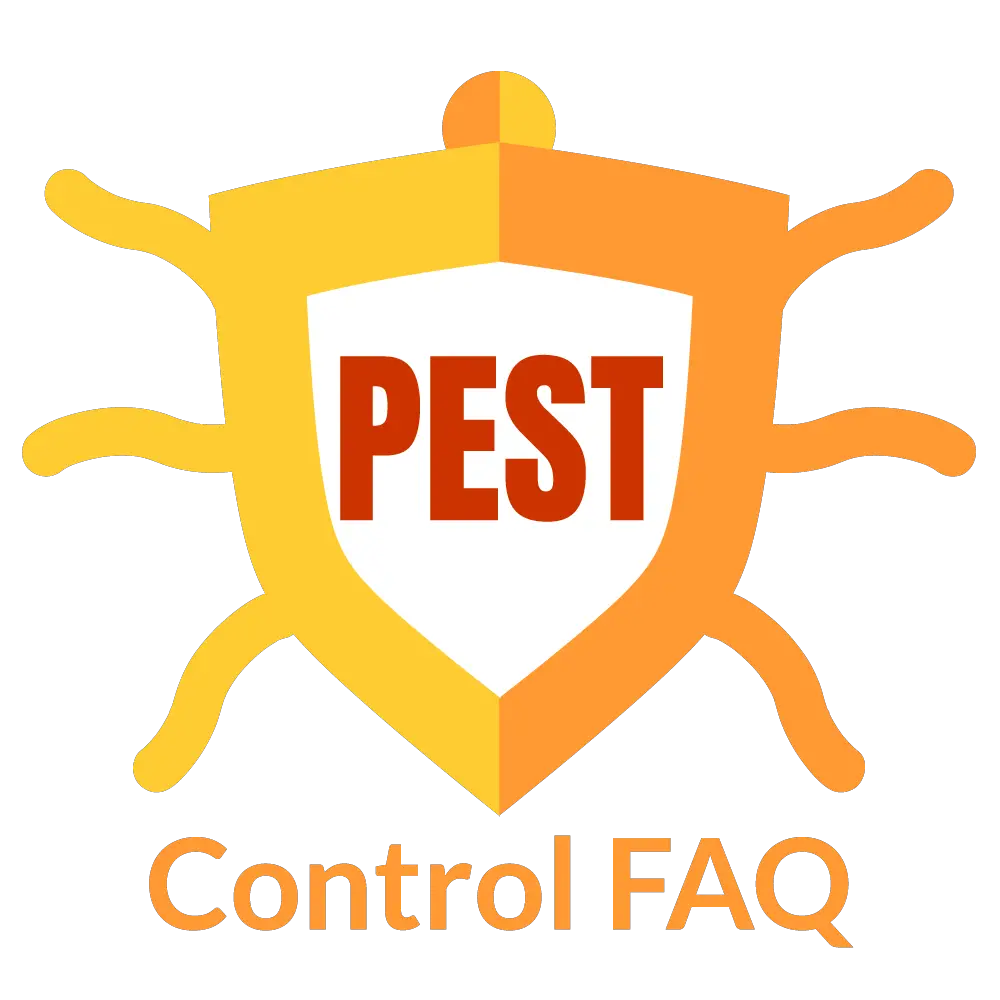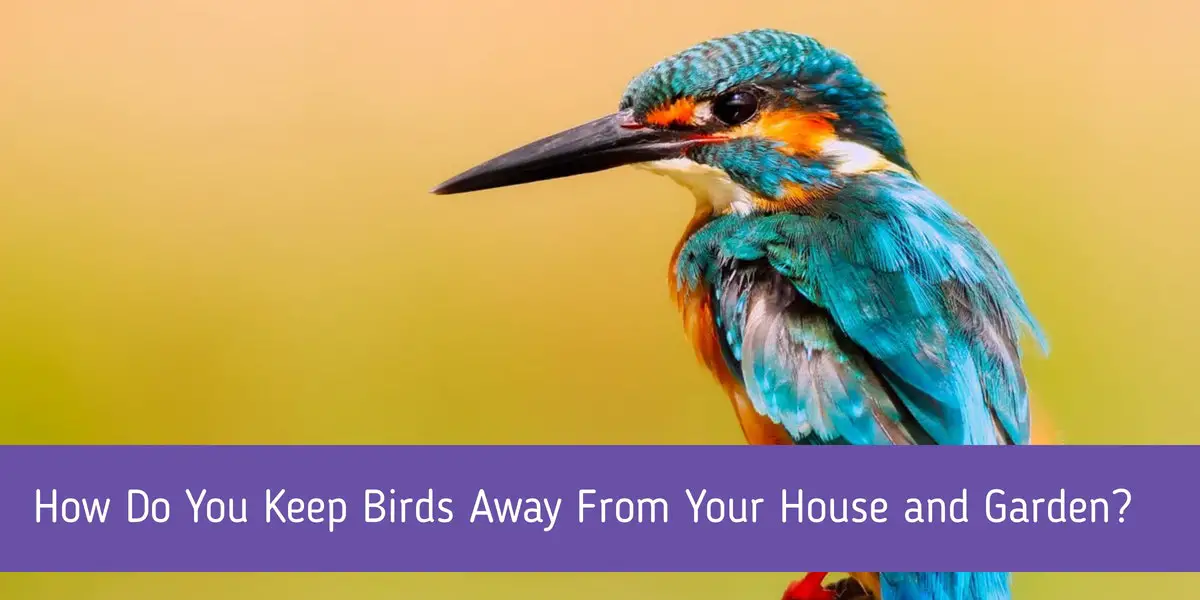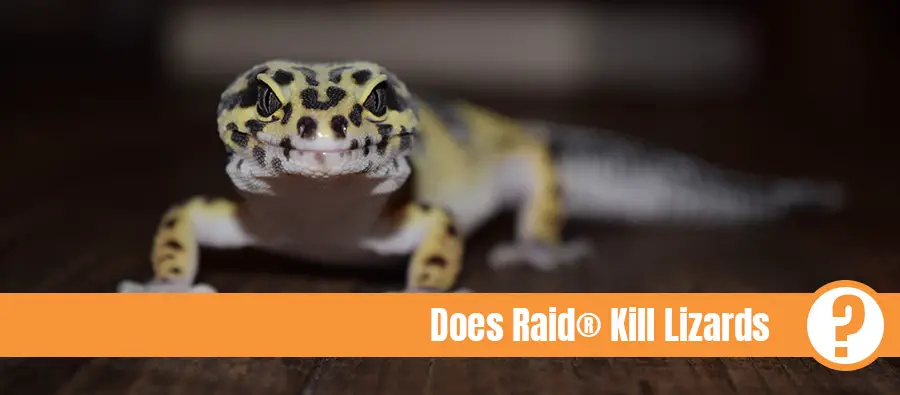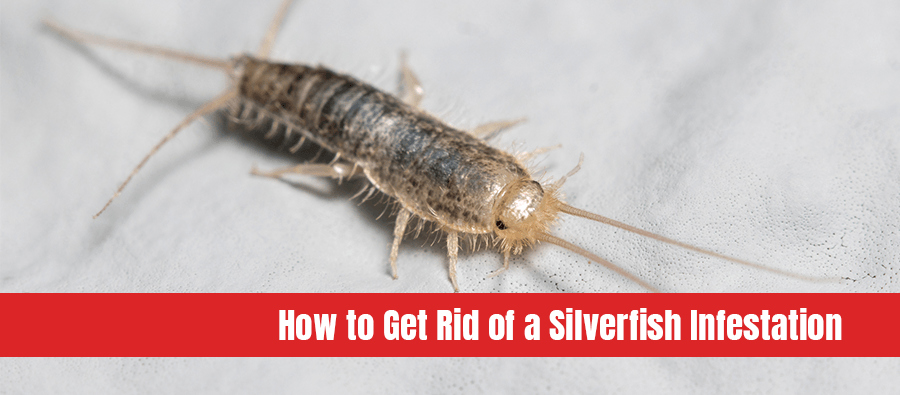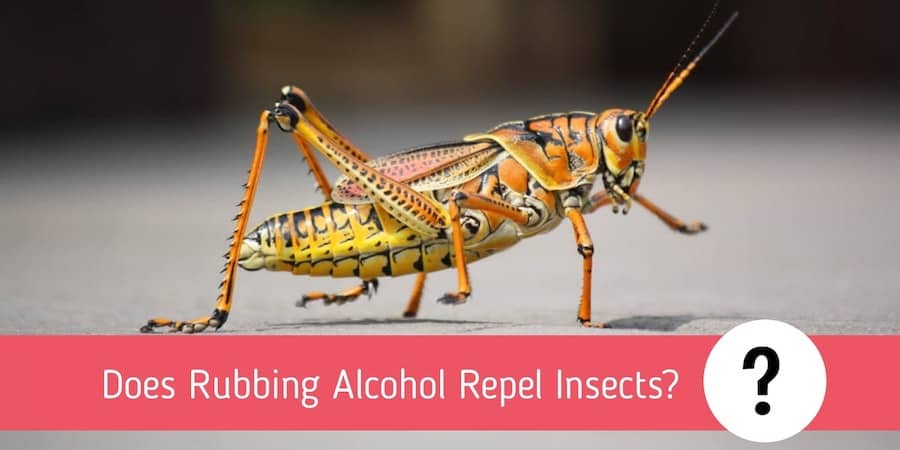There are many ways to repel birds including the use of homemade sprays, commercially-made sprays, visual repellents, shiny objects, and obstacles.
How do you keep birds away? Placing objects that distract or scare the birds are some of the most effective solutions. Setting a decoy of an owl near your garden should keep birds from perching or nesting in the area. Fishing line strung between trees can prevent birds from your yard. Sprays are also useful as they can cover large areas and simply repel birds with a strong scent.
In this article, we are going to explore the best methods for keeping birds away from your house or garden. Use these tips to determine which type of repellent is right for your situation and how to make your property less attractive to birds. Also, we are yoing to talk about how to keep the birds away naturally.
Table of Contents
How Do You Keep Birds Away From Your House and Garden?
When trying to keep birds from a your house or garden, property owners can rely on homemade solutions or store-bought products.
Explore the Different Ways to Repel Birds
Commonly recommended options include:
- Visual repellents
- Bright objects
- Obstacles
- Electronic repellents
- Bird-repellent sprays
Visual repellents
The most well-known visual repellent is the scarecrow. A scarecrow is a decoy made in the shape of a human, typically to scare birds from crops.
Besides the traditional scarecrow, there are other effective visual bird repellents. Fake snakes, owls, and other predators may help keep birds from perching or nesting in a specific area. There are also hawk kites and repellent balloons.
Owls are particularly effective when set up near gardens, patios, or pools. Attach the decoy to a pole in a prominent spot to ensure that the birds see the decoy.
Use fake snakes in or near pools. Seeing the snake discourages the birds from landing or pooping in the area. However, these repellents are most effective when moved at least once per day.
Bright objects
Bright objects may keep birds out of your yard. Try sheets of foil, old CDs, and other reflective surfaces. The glare from the sun interferes with the birds’ sight. They are likely to fly around the area to avoid bright lights.
Reflective materials are suitable for a variety of locations. Add them to trees, place them on your vehicle, or tie them to poles above your garden.
Obstacles
Creating an obstacle is another option, but it requires more work. You may run a fishing line between trees or fence posts to create a crisscross pattern above your pool or deck.
The fishing line should be almost invisible to you and a significant obstacle for birds. Instead of trying to navigate the obstacle, birds will merely avoid your yard.
Electronic repellents
Electronic repellents are another option for repelling birds. Some of these devices include a microphone that listens for the frequencies emitted by specific species of birds.
After detecting a bird, the device releases a repelling odor or noise to direct the birds away from your property. The ultrasonic and audio repellents often produce frequencies that are outside of the human hearing range.
Besides these options, homeowners often use sprays to protect their properties from bird droppings, birds of prey, and bird nests.
Bird-repellent sprays
What can you spray to keep birds away? There are many types of homemade sprays and commercially-produced bird repellents. These sprays do not injure or kill the birds. You spray the solution over the areas that you want to protect, and they emit a strong scent to repel the birds.
You can make homemade sprays from fruits or herbs with strong odors. Store-bought sprays also produce scents that the birds do not like and may provide a more effective solution.
Take a look at our previously written article “Does Bird Repellent Gel Really Work? Complete review”
How do you keep birds away naturally?
If you want a natural method for deterring birds, homemade sprays provide a suitable deterrent. These sprays work by coating an area in a scent that the birds find repulsive. Some of the foods products that offer smells to keep birds away include:
- Garlic oil
- Chili pepper
- Cayenne pepper
- Peppermint oil
- Red vinegar
Pros of Using Homemade Bird Repellent Sprays
Using one or more of these ingredients, it is possible to make a DIY bird repellent spray. Crush or grind the ingredients and then combine with water. Place the mixture in the sun to ferment for at least one day.
Spray the mixture from a spray bottle to quickly cover small areas, but keep in mind that for larger areas, you should consider adding the mixture to a plant mister. The device continually releases the solution, eliminating the need for reapplication every few days.
Since homemade sprays are fairly easy to make the main advantage of making your own spray is the cost. So, to create a spray, you simply need a repellent food, some water, and a spray bottle.
These homemade sprays are also non-toxic and environmentally friendly. They only include water and one or more foods, making them completely natural and safe for use throughout your property. If birds, your own pets, or any other animals ingest the spray, there is no risk of poisoning.
Cons of Using Homemade Bird Repellent Sprays
While homemade bird repellents are convenient, they also have a few disadvantages:
- Homemade sprays often require reapplication.
- Some sprays may repel essential insects.
- You may not enjoy the smell.
- Homemade sprays do not always work.
The homemade solution is unlikely to remain active after rainfall. The odor will also gradually fade over two or three days, requiring you to reapply the mixture.
The odors may repel more than just birds. Some sprays can repel insects and other critters that are an essential part of the ecosystem in your garden or backyard.
Depending on the ingredients, you may not enjoy the odor of the homemade spray. It may repel you and your guests, keeping you from enjoying time in your backyard.
Homemade sprays do not always work. You may dilute the ingredients too much or not thoroughly cover the area that you want to protect. In some cases, the odor is simply ineffective for certain species of birds.
Top Five Bird Repellent Products for Quick Results
Since DIY solutions are not always the most effective way to solve the problem we a re going to take a look at the store-bought bird repellents. With store-bought bird repellents, you receive carefully designed and tested products.
While some of the homemade repellents may work, the following products often provide faster results with less hassle.
1. Owl Decoy with Rotating Head
The most basic repellent remains one of the most effective. With a decoy owl, you get a simple deterrent. It does not require batteries. The head and fin spin as the wind blow.
The decoy owl is also cost-effective. You can keep using it for years without needing to purchase a replacement. However, it may not suit every situation.
For example, the decoy may not work for keeping birds from your gutters or pooping on your vehicle. It is effective for keeping birds from your garden or pool area.
2. Bird B Gone MMTBG Transparent Bird Gel
Apply repellent gel to gutters, downspouts, and eaves. It creates a sticky barrier that prevents birds from nesting on your property. The formula is also non-toxic, ensuring that you have a humane solution for keeping birds away.
The gel is not the best option for protecting your patio, pool, or garden. It is mostly suited for keeping birds from structures such as the gutters and roof.
3. Bonide 238 Qt RTU Animal Repellent Spray
Bonide animal repellent spray is easy to apply and keeps a wide range of animals away from your property. Spraying on vegetation such as your garden is safe. The spray contains natural ingredients including eggs, cloves, and garlic oil.
Besides birds, this spray is effective for keeping cats, deer, rats, skunks, squirrels, and other critters out of your yard. While the repellent is safe for pets and animals, it can cause nasal irritation if applied too thickly.
The main benefit is the low price. You can coat a large area and use it on almost anything. The spray is suitable for use on decking, structures, gardens, trees, and gutters. The only thing that it may not help with is bird droppings.
4. PREDATORGUARD Bird Repellent Scare Tape
Scare tape comes in a roll and features reflective material on both sides. The tape is affordable and easy to install.
To use this product, you simply tie strands of the material to posts or objects throughout your property. The reflective element helps disorient birds and other animals, especially when the wind starts to blow.
The only drawback is that it’s not the most appealing sight to see reflective strips dangling in the wind. To your neighbors, the tape may appear to be random debris or trash.
5. HOMESCAPE CREATIONS Bird Repellent Reflective Scare Rods
These scare rods provide use the same scare tactics as the repellent tape. The rods feature a spiral design and reflective material. They direct sunlight in every direction even when the wind is not blowing.
The rods are also attractive when hung from rafters or porch awnings. However, you may have difficulty hanging them above a pool or vehicle.
Why Should You Keep Birds Away from Your Property?
While watching birds eat from a feeder or search for food in a bush can be relaxing, birds can also be a hassle.
Some of the top reasons for needing to keep birds away from your property include:
- Bird droppings may damage car paint.
- Droppings in the pool create unsanitary conditions.
- Nests in gutters can block water drainage.
- Birds may eat from your garden.
- Nesting birds can create noise disturbances.
- Some birds are predators.
Bird droppings may damage car paint
Bird droppings are potentially harmful to car paint and the surfaces of various building materials. The droppings contain a chemical called uric acid that can affect the paint on vehicles or outdoor equipment. The acid can eat away at the clear coat protective layer, damaging your car paint in just 48 hours.
Parking vehicles and covering equipment offers protection from the droppings. If this is not an option, using bright objects may help repel the birds.
Bird droppings in your pool
If the droppings get in your pool, they may affect the water quality, creating unsanitary swimming conditions. The droppings are also unsightly and difficult to clean from pool decking and outdoor patios. Fishing line, decoys, and sprays may work best to protect these areas.
Nests in gutters
Birds often establish nests in trees. However, they are also known to search for other stable surfaces, including gutters. A nest in the gutter may block proper water drainage, preventing rainwater from flowing down and away from your property.
With a clogged gutter, you have a higher risk of water damage, flooding, and damage to the foundation. Gutter covers and guards help keep birds, leaves, and other debris out.
Birds may eat from your garden
Besides damaging vehicles and property, birds may take your food. Birds regularly look for food in gardens or fruit-bearing trees or shrubs, such as grapevines. Decoys such as scarecrows or fake owls typically help keep birds away from crops.
Nesting birds can create noise disturbances.
If birds establish a nest in a tree or part of your roof, the noise may create a disturbance at certain times of the day. You may find yourself waking up to the sounds of birds outside your bedroom window.
After they establish a nest in a tree, you cannot remove the bird’s home. Spraying the trees near your property with a bird repellent may keep the birds from nesting in the first place.
Some birds are predators
Predatory birds may pose a threat to your pets, including cats or small dogs. These predatory species are called birds of prey and include the following:
- Hawks
- Eagles
- Falcons
- Vultures
- Osprey
- Buzzards
Sprays may help deter these species from flying near your property. It is also a good idea to take extra precautions to protect your pets. Supervise your pets in the backyard or provide a covered run for small dogs.
How to Make Your Property Less Attractive to Birds
Using bird repellents should prevent birds from perching or nesting in your yard. However, using a repellent is only half of the solution. There are also steps that you can take to make your property less attractive to birds:
- Keep trees and shrubs trimmed back.
- Remove food sources from your property.
- Eliminate areas where water collects.
Keep trees and shrubs trimmed back
To make your property less attractive to birds, eliminate access to food, water, and shelter. To target their shelter, find ways to keep them from nesting on your property, such as trimming back trees or shrubs.
Cut back trees and plants that grow close to your property. If birds establish a nest in the tree, it may be far enough away to prevent noise disturbances. You may even trim back branches that offer support for a potential nest. Keeping your trees trimmed away from the property may also reduce the risk of nesting in your gutters.
Remove food sources from your property
Some food sources are easy to remove. Get rid of any bird feeders and consider replacing fruit-bearing plants with something else. If your shrub produces berries, replace it with a fruitless shrub.
While you can replace plants, you may not want to give up your garden. One effective way to keep the birds out is to enclose the garden with chicken wire.
Create a makeshift cover out of extra four-foot posts and chicken wire. You can then get into your garden as needed while keeping birds from getting in.
Eliminate areas where water collects
After getting rid of access to food and shelter, eliminate any water sources on your property. This includes fountains and uneven terrain where water may collect after a rainstorm.
The easiest way to level terrain is to fill in the dips with extra soil and then add grass seed. If you want to level your yard thoroughly, rent a roller and roll out the soil. This will likely kill most of the grass, requiring reseeding.
Conclusion: How Do You Keep Birds Away From Your House and Garden?
The methods that you use to keep birds away depend on the location. If you want to keep birds away from a garden, trees, or other plant life, repellent sprays often work best. Spray directly on the plants to create an aroma that repels birds.
To keep birds from pooping on decking, pools, vehicles, and other structures, you may need a decoy or electronic repellent. Fake owls and ultrasonic repellents offer more range compared to the scent of a repellent spray.
Bright objects such as reflective rods or tape are suitable for most locations as the shiny lights disorient the birds.
No matter which option you choose, it is important to continue using repellent to keep birds from coming back each year.
Related Questions
Will wind chimes scare birds away? Loud noises can startle birds and other pests, causing them to flee the area. While birds can adapt to repetitive sounds, the wind chimes typically chime unpredictably when the wind blows. Adding a wind chime to your porch or patio may provide a simple and effective way to help keep birds away.
How do you keep birds out of gutters? The easiest way to prevent birds from nesting in your gutters is the installation of gutter covers or guards. These options include plastic guards that shield the gutters and mesh covers. Besides keeping birds from nesting, they prevent leaves and other debris from clogging the gutters.
Can you remove bird nests from trees or gutters? In most regions, you cannot remove a bird’s nest during nesting season, which typically lasts from late spring to late summer. Removing the nest may harm the birds and chicks. However, if the nest is in a spot that is unsafe for humans and the birds, your local animal control may be able to relocate the nest. Outside of nesting season, you can safely remove nests from trees and gutters.
